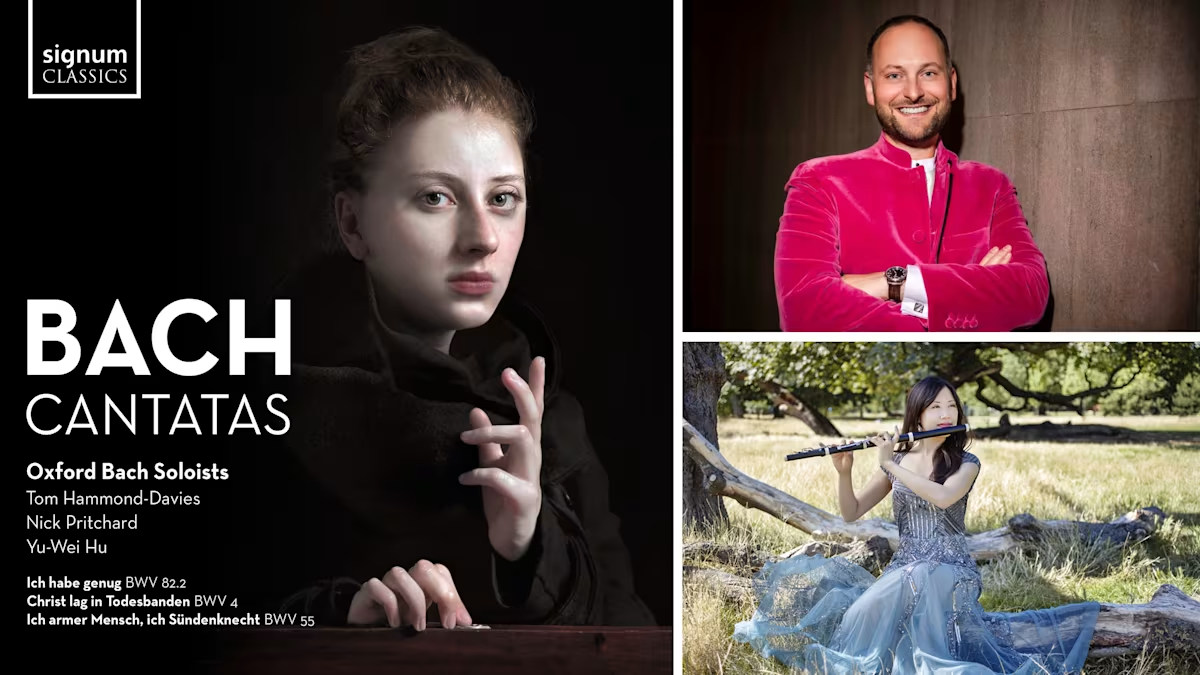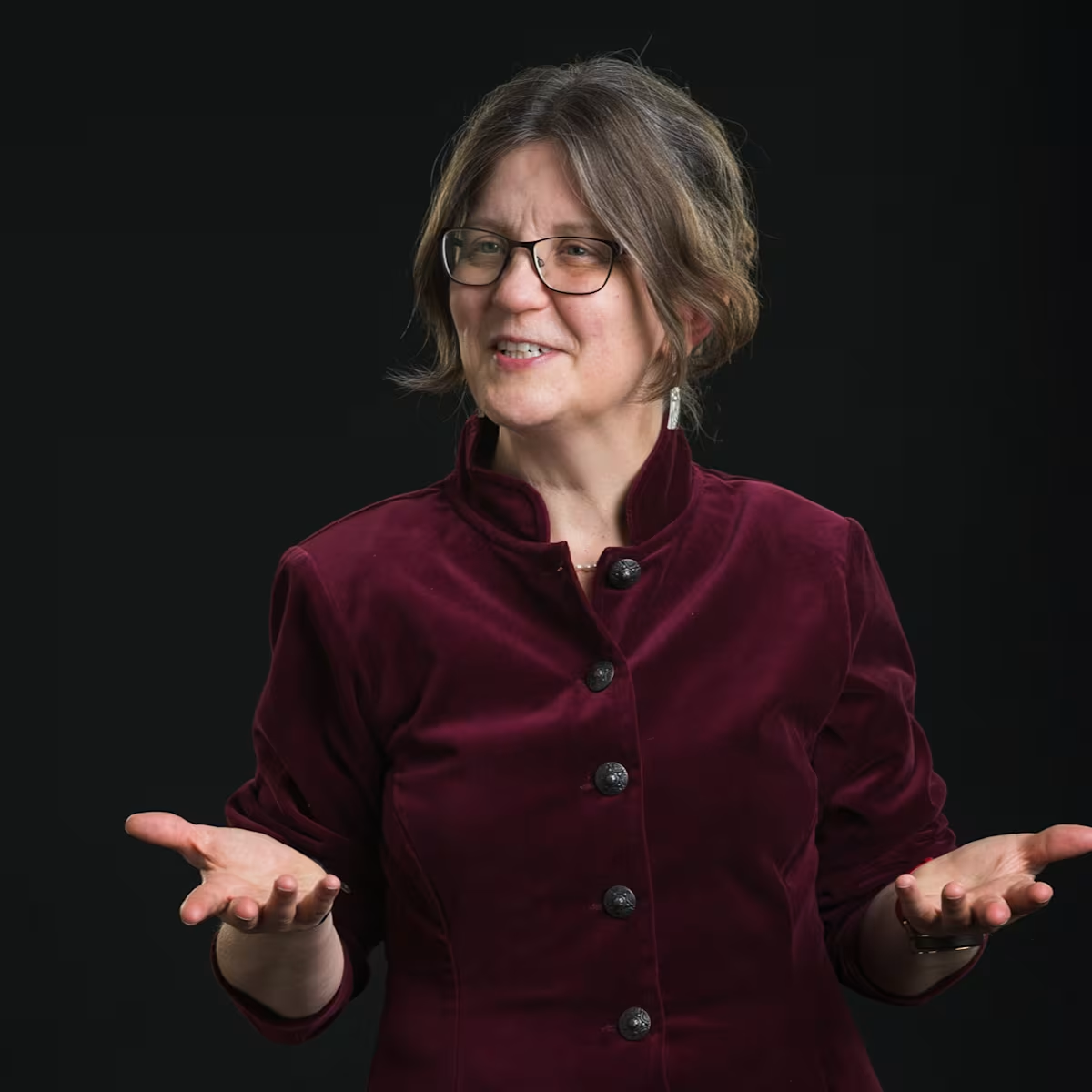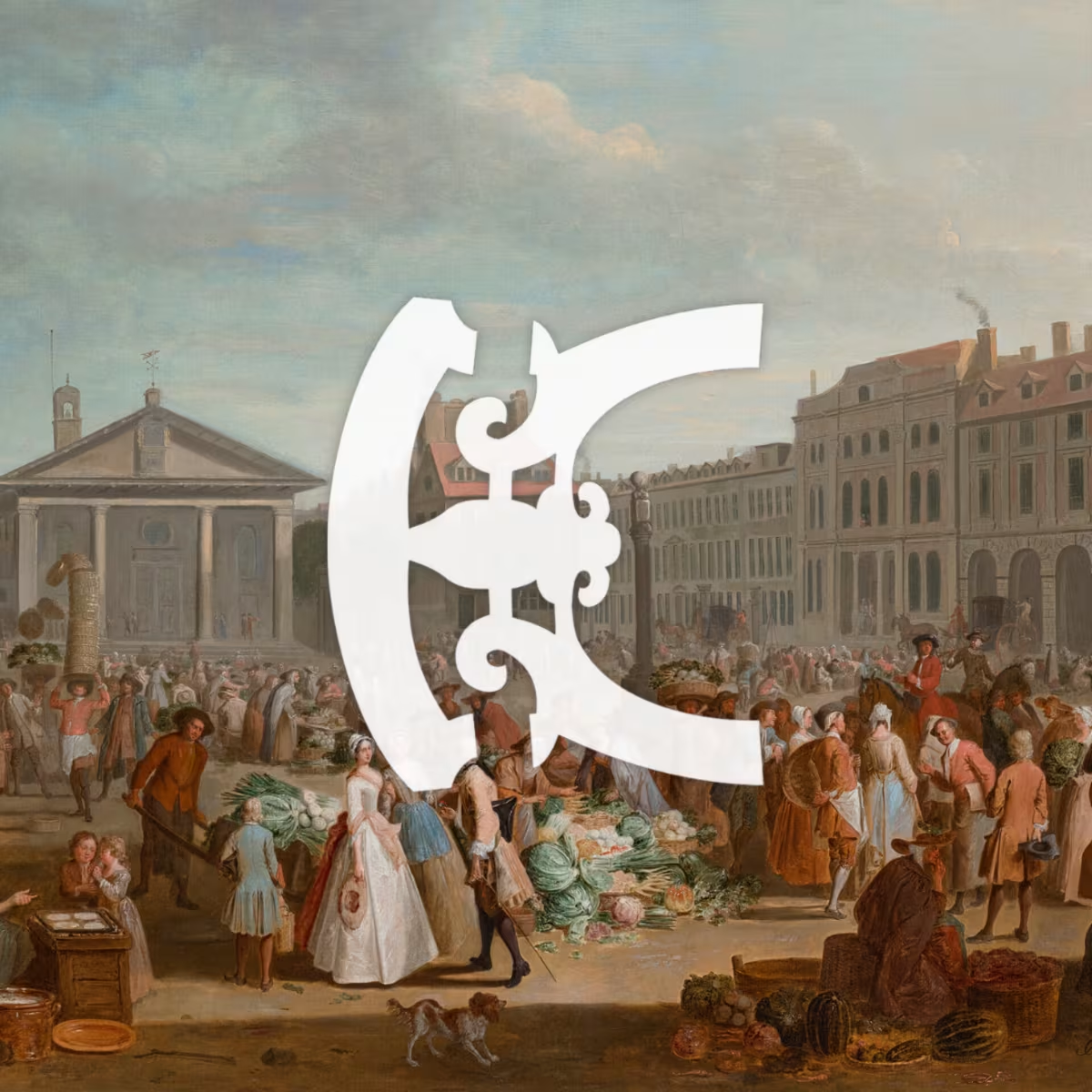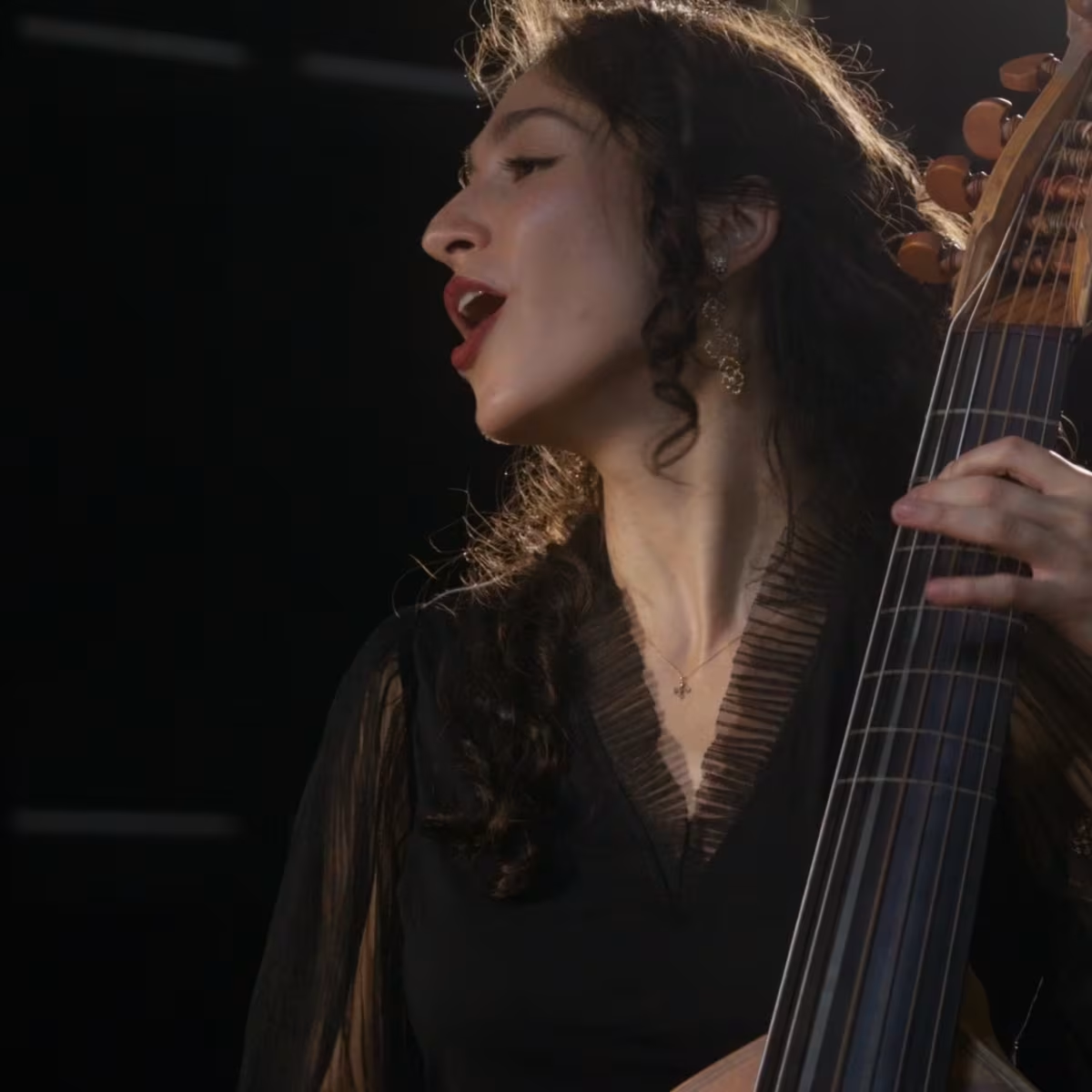Feature
Nick Pritchard: Fuelled by Passion
Share this

BY ASHUTOSH KHANDEKAR | FIRST PUBLISHED 10 AUG 2025
British singer Nick Pritchard is recognised as a leading tenor and one of the foremost Evangelists of our day, projecting the story of Bach’s Passions with energy, insight and conviction. Though a specialist in the Baroque repertoire, his career path has taken him off on many musical adventures, as he explains to Continuo’s Ashutosh Khandekar.
Nick Pritchard is one of the most exciting and distinguished young tenors in today’s classical music scene, with a voice that lends itself to the Baroque repertoire, thanks to its natural clarity, focus and elegance. Few would guess, then, that the first pivotal moment in his career came when he was just two years old, watching a British comedy classic: 'I was sitting by the telly singing along to the theme of Dad’s Army! My mum noticed I could sing in tune, and thought, Oh, maybe that’s something to pay attention to…’ His musical instincts were nurtured early at his local state primary school in West Sussex, where a music-loving headmaster and dedicated teachers gave music a central place: ‘I was lucky – I had the kind of music education that’s increasingly rare in state schools.’
As a result of this encouragement in his early years, Pritchard won a music scholarship to Christ’s Hospital, a school known for its artistic leanings and distinctive Tudor-style uniforms. The appeal of Baroque music still lay ahead, though. Pritchard’s formative influences as a teenager centred around musicals and amateur dramatics. Amidst all the fun, there was some serious work to be done: ‘I had a brilliant singing teacher, John Hancorn, with whom I’m still in touch – he conducts the Baroque Collective and the East Sussex Bach Choir. He gave me solid vocal foundations.’
Pritchard went on to read music at New College, Oxford, as a choral scholar. There, he continued to explore music with open curiosity: ‘I sang everything. One night I’d be doing Stevie Wonder at a pub gig, and the next morning I’d be singing in the chapel choir. That breadth prevented me from thinking in musical boxes – it was all just music.’ He also sang in an a cappella group, Out of the Blue, famous for its upbeat close harmony arrangements of pop and rock songs. ‘We toured the US, recorded albums… I don’t know how I found the time to do both that and New College Choir. Edward Higginbottom, who was the choir’s eminent director at the time, just about tolerated it…’
JS Bach Wohl dem, der sich auf seinen Gott, BWV 139: II. ‘Gott ist mein Freund’ | Nick Pritchard, Davina Clarke & Tom Foster (from the album, ‘The Art of Obligato’, supported by Continuo Foundation)
It was during his time at university that Pritchard saw a real path forward to a career as a classical singer: ‘Oxford has this amazing mix, with lots of undergraduate music-making that has amateur choral singing and evensong at its core, but also involves professional musicians who live locally and sometimes perform with the choirs. I was always curious about a musical career and how to develop my voice, so I’d talk to the pros whenever I could. I remember Nicholas Mulroy joining New College as soloist for a Messiah tour. We stayed in touch, and now we work together a lot. He’s a fantastic guy. Another tenor, Daniel Norman, lives in Oxford and was also incredibly generous with his time and advice. That kind of informal mentorship meant a lot.’
This mix of curiosity, mentorship and instinct led Pritchard to study at the Royal College of Music in London before embarking on a singing career that today, at 35, sees him comfortably settled into a repertoire ranging from Monteverdi to Mozart, with forays into contemporary music. ‘A lot of decisions around repertoire are shaped by one’s natural sound,’ he says. ‘In my early days as a tenor, I made the mistake of trying to imitate singers with bigger voices than mine. I still don’t have the biggest voice in the world. That’s why I often say there’s about a hundred-year gap in what I sing: I tend to perform very early music through to mid-Classical, and then quite a bit of contemporary repertoire – especially Benjamin Britten, which I love. As for the big Romantic stuff, I don’t really touch it.’
Nick Pritchard sings Male Chorus in Britten's The Rape of Lucretia

Pritchard’s mainstay these days is Baroque oratorio, and especially the music of Johann Sebastian Bach. His long-standing and extensive work with the Oxford Bach Soloists and their founding artistic director Tom Hammond-Davies was recently encapsulated in the ensemble’s debut recording of Bach Cantatas released at the end of 2024 on the Signum label.
Pritchard has an important presence in the recording, which features one of the composer’s earliest choral works, Christ lag in Todesbanden, and two solo cantatas: ‘Bach wrote a lot of fantastic tenor arias,’ says Pritchard. ‘But unfortunately there’s only one solo cantata that we know of written specifically for tenor voice, Ich armer Mensch, ich Sündenknecht.
But there is a version of Ich habe genug – which is very well known in its original version for oboe and bass, but less so in the higher transposition by Bach himself with flute obligato. It was written for Anna Magdalena, Bach’s second wife and a celebrated soprano. Bach uses the combination of tenor with flute on several occasions in the oratorios and passions, so there was a precedent for me to sing the cantata on the recording with the wonderful flautist, Yu-Wei Hu.’
JS Bach Ich armer Mensch, ich Sündenknecht, BWV 55: I. Aria, ‘Ich armer Mensch, ich Sündenknecht’ | Nick Pritchard, Oxford Bach Soloists, Tom Hammond-Davies
JS Bach Ich habe genug, BWV 82: I. Aria, ‘Ich habe genug’ | Nick Pritchard, Yu-Wei Hu, Oxford Bach Soloists, Tom Hammond-Davies
Meanwhile, the role of Evangelist in Bach’s St John and St Matthew Passions has become the calling card on which Pritchard’s considerable reputation has been built, with critics hardly able to contain their superlatives. The Guardian’s Tim Ashley praised ‘the finest account of the role I’ve ever heard’. Meanwhile, Alexandra Coghlan in iNews hit the nail on the head when she noted that Pritchard’s singing is ‘operatic without affectation’ and ‘wonderfully humane’. The two Evangelists, John and Matthew, have very different personalities, Pritchard says: ‘They are characters in the drama, and when you're singing those roles, you're not just narrating – you become Matthew, you become John. You're emotionally invested in what happens to Jesus. You react to the drama and sentiment of the choruses, the chorales and the arias. The story and characters are theatrical.’
JS Bach St John Passion, BWV 245: No. 2, ‘Jesus ging mit seinen Jüngern’ | Nick Pritchard, William Thomas, The Monteverdi Choir, English Baroque Soloists, Sir John Eliot Gardiner
This natural penchant for drama has taken Pritchard on several operatic forays, including major roles such as Ferrando in Mozart’s Così fan tutte, Tamino in The Magic Flute and Lysander in Britten’s A Midsummer Night’s Dream. He also created the challenging role of Matthew in the world premiere of Mark Simpson’s Pleasure. During the summer, he was in France singing Mercure in Lully’s Prosperine with Les Talens Lyriques under Christophe Rousset.
French repertoire is one into which he would like to take a deeper dive. ‘French Baroque music is just incredible — so colourful and expressive! It’s a bugbear of mine that it doesn’t get more attention this side of the Channel. It’s been amazing working with a largely French-speaking group. You really feel how much the music is shaped by the language. To really get inside it, you need a good feel for the rhythm and flow of French speech, not just in terms of pronunciation, but in how it moves and breathes musically.’
Following his French adventure, Pritchard takes on the mantle of artist-in-residence at Temple Music in London this September, opening with Schubert’s song cycle, Die schöne Müllerin, and also featuring an evening of Dowland lute songs with Elizabeth Kenny in the Middle Temple Library – Pritchard’s first ever solo lute recital. Towards the end of October comes a new album on the Signum label: Little Wanderer features a collection of songs by British composers Benjamin Britten, Imogen Holst and Daniel Kidane, with pianist Ian Tindale. The change will be as good as a rest before the onslaught of seasonal Bach and Handel oratorios over Christmas and into 2026.
Handel Messiah, ‘Thou shalt break them’ | Nick Pritchard & the OAE (video concept inspired by The Verve)
As winter approaches, does Pritchard ever think to himself, ‘Oh no, not yet another Messiah!’? Doesn’t he hanker after the bright lights and celebrity status of the opera world, which is surely every tenor’s dream? ‘I’m very happy for now to do a couple of operas a year,’ the level-headed tenor replies. ‘I’m lucky enough that my plate is pretty much overflowing with concert work, singing the repertoire that I love. That means shorter tours, and less time away from home – which suits my voice and works better for family life. As far as I’m concerned, that’s a win-win on every front!’
Hear Nick Pritchard live this Autumn at Temple Music in London, performing Schubert’s 'Die Schöne Müllerin (9 Sep), Lutesongs with Elizabeth Kenny (16 Sep) and Acis & Galatea (23 Sep). His album of Bach Cantatas with Oxford Bach Soloists is available to purchase on Signum Records and to stream on Spotify.
Share this
Keep reading

Voices from a manuscript
Laurie Stras explores how centuries-old scores in the Biffoli–Sostegni manuscript reveal the living sound and practices of nuns in a Florentine convent.

Playlist: 1726 in music
To begin the new year, we explore the year 1726 in music. It includes works written in 1726, as well as works to marking musical occasions that year.

Bellot Ensemble | Strozzi: Amor dormiglione
Barbara Strozzi’s ‘Amor dormiglione’ is one of her most beguiling and subtly witty arias, a gently teasing address to Cupid himself.




